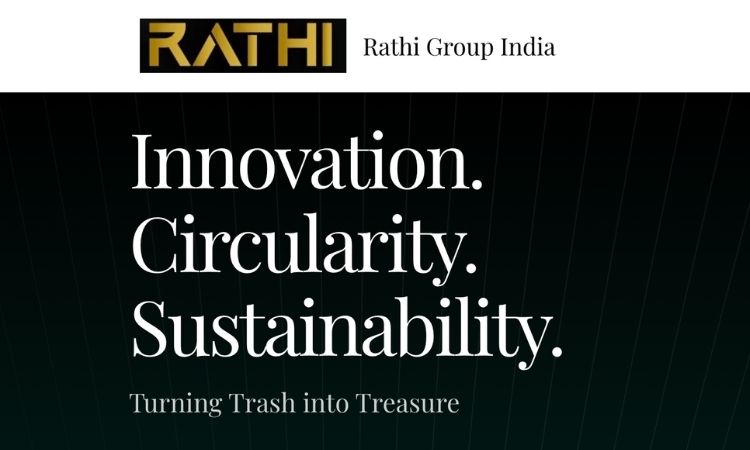Sustainable and Smart Mobility Strategy published by ETRMA
In April 2021, The European Tyre and Rubber Manufacturers’ Association (ETRMA) announced the publication of the Communication on the Sustainable and Smart Mobility Strategy.
According to ETRMA, the green and digital transitions combined with the focus on competitiveness and resilience play a key role in the identified pathway for recovery published by ETRMA on 12 May 2020, when the sector asked to prioritize the initiatives to achieve climate neutrality and digital transition, and requested a supportive and reasonable timing to the overall changing regulatory framework. ETRMA welcomes the coherent approach between this Communication, the Green Deal and the EU COVID-19 recovery plan.
In its press release, ETRMA says it would like to drive the attention of the EU Institutions to the role that tyres can play in the deployment of sustainable and smart mobility.
“Tyres keep the world moving. The tyre sector and its value chain have a vital role to play in creating a future with environmentally friendly, safe, efficient and accessible mobility for all. Tyre products and services are crucial for ensuring safe mobility and the sector continues to research and develop tyres that contribute to improved safety and environmental performances, including increased wet grip, reduced tread wear and lower rolling resistance. For many years, efforts of ETRMA members have been dedicated in meeting the market demand by reducing their CO2 footprint throughout the whole tyre life cycle and investing in innovative and sustainable technologies, while improving road safety performance,” – ETRMA writes.
The Sustainable and Smart Mobility Strategy recognises that high performance tyres should be further promoted. In this context, the EU tyre industry is furthermore committed in the implementation of the revised Tyre Labelling Regulation, which applies from 1 May 2021. The tyre label is an important tool both to contribute to the Green Deal agenda and to better inform and further empower consumers when buying tyres and deliver wide market uptake of tyres with the best safety and environmental performances. From its part, the Industry is now committed to go beyond these already high standards to deliver a safe, climate-neutral and innovative future. These commitments contribute to the flagships and the objectives of the Smart and Sustainable Mobility Strategy and go beyond as they include also objectives related to resource efficiency and circular economy:
- Contribution towards climate targets set by the European Commission and matching Flagship 1 of the Mobility Strategy (boosting the uptake of zero-emission vehicles, renewable & low-carbon fuels and related infrastructure):
- The EU tyre industry is fully committed to the decarbonisation ambition of the Green Deal. – Commitment: From 2024, support the next step in the tyre regulatory framework to improve the fuel efficiency of tyres on the market by tightening the type approval limits for Rolling Resistance of tyres . This measure has the potential to remove more than 50% of the worst performing products from the market
- Impact: CO2 Savings: close to 1 million cars equivalent CO2 emission reduction
- Contribution towards safer transport and matching Flagship 10 of the Sustainable Mobility Strategy (enhancing transport safety and security):
- Commitment: By 2024, the Tyre Industry will improve safety by raising the Wet grip requirements for new tyres between 10 and 20%, depending on the tyre category. Furthermore, tyre Industry is supporting the development of a test method to evaluate wet grip performance of passenger (C1) tyres when these are worn to minimum legal tread depth. Tyre Industry will also assist to find suitable approach for Light Duty (C2) and Heavy Duty Truck and Bus (C3) tyres..
- Impact: Minimum wet grip level improved and maintained throughout the tyre and vehicle lifetimes.
- Contribution towards a zero pollution environment – generally matching actions under Flagship 1 of the Sustainable Mobility Strategy:
- Commitment: The tyre industry is committed to actively contribute to the work of developing by 2023 a reliable and reproducible method to measure tyre abrasion rate for passenger car (C1) tyres, representative of European usage.
- Impact: Possibility to measure and regulate tyre abrasion.
- Contribution to resource efficiency and circular economy – engaging and outreaching the objectives of Flagship 1 of the Sustainable Mobility Strategy:
- Commitment: By 2022, support the introduction of the label regulation delegated act on retreaded truck tyres, which reflects the material-saving dimension and allows a fair comparison with new tyres on fuel efficiency
- Impact: Reduction of about 160 kg of waste and saving of 104 kg raw materials for each truck tyre retreated twice.
According to ETRMA, through these commitments, tyre performance will improve dramatically in terms of CO2 emissions and road safety. Furthermore, the measurement of tyre abrasion will open the way to additional improvements in environmental performance. However, account must be taken of the trade-offs between different tyre performance characteristics.
Just like in the mobility strategy, these commitments on sustainable mobility need to be supported by a successful digital transition for the tyre industry – which has long started building its present and future as Mobility-as-a-Service provider through the concept of tyre-as-a-service.
Such services will help drivers and fleet operators to further contribute to the objectives listed above by saving fuel, increasing road safety and vehicle uptime, reducing congestion and, all in all, contributing to decarbonisation and clean air. As underlined in Flagship 7, there is the need for the EU to ensure that the key digital enablers are in place. For the tyre industry, this points to the need to speed up a consistent regulatory work on smart mobility and especially on access to in-vehicle data but also on more comprehensive proposals on data (like Data Act) and on Artificial Intelligence.
About ETRMA
The European Tyre & Rubber Manufacturers Association (ETRMA) represent nearly 4.400 companies in the EU, directly employing about 370.000 people. The global sales of ETRMA’s corporate members represent 70% of total global sales and 7 out of 10 world leaders in the sector are ETRMA Members. The product range of its members is extensive from tyres to pharmaceutical, baby care, construction and automotive rubber goods and many more applications. We have a strong manufacturing and research presence within the EU and candidate countries, with 93 tyre plants and 16 R&D centres.
Original press release by ETRMA.
Weibold is an international consulting company specializing exclusively in end-of-life tire recycling and pyrolysis. Since 1999, we have helped companies grow and build profitable businesses.









